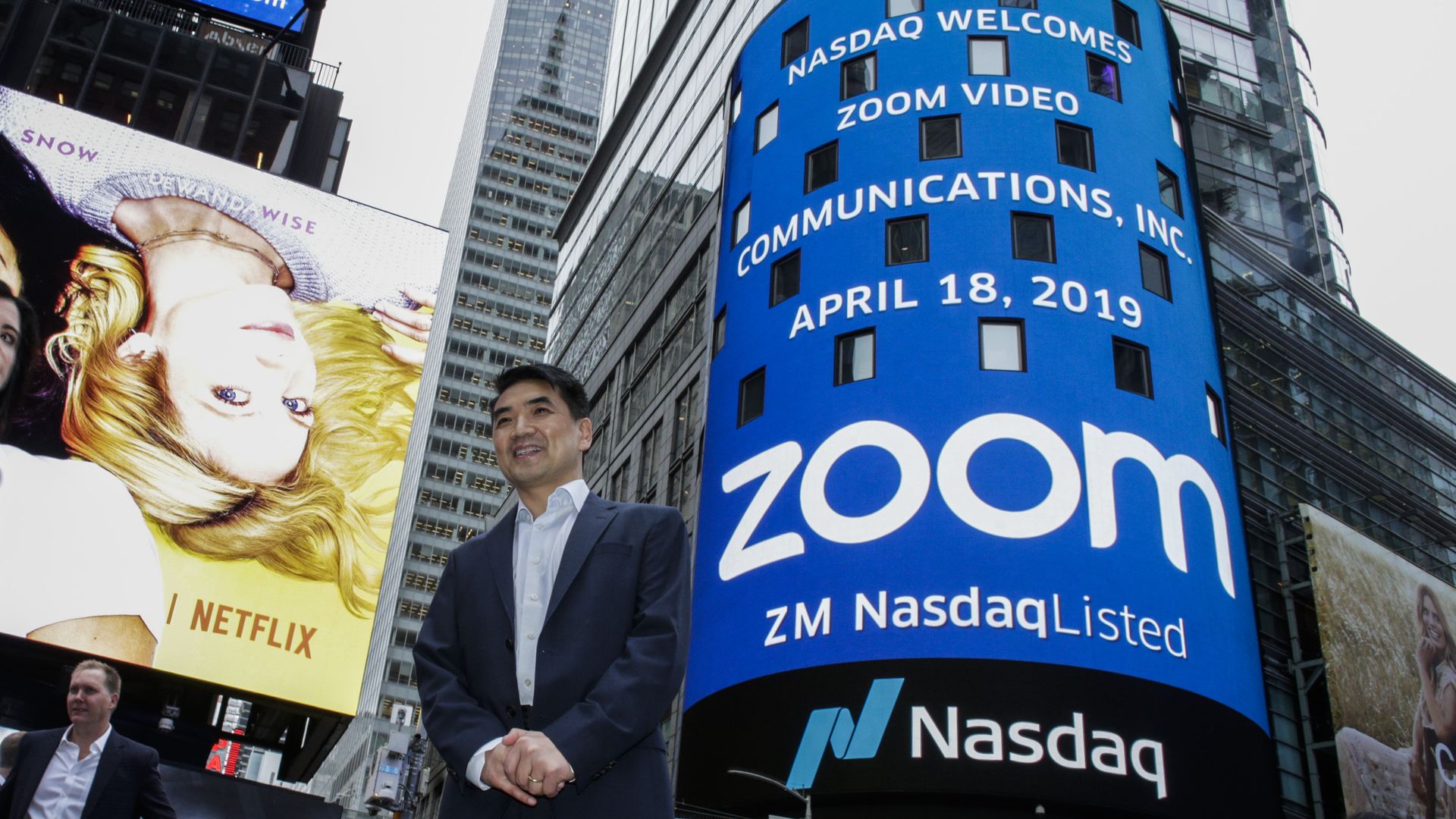Zoom's tarnished moment of glory
Add Axios as your preferred source to
see more of our stories on Google.

Zoom founder Eric Yuan in New York on the day of the firm's 2019 IPO. Photo: Kena Betancur/Getty Images
This is clearly Zoom's moment in the spotlight, as the public has embraced the videoconferencing provider's service during the coronavirus lockdown. However, security woes, privacy controversies, and trolling incidents have marred the company's star turn.
The big picture: When Zoom usage soared as Americans started working and studying from home, some worried whether it could handle the load. It did, but other problems cropped up as millions of consumers started using what had been an unsung piece of business software.
Driving the news: Over the past week, researchers have reported a variety of security flaws in Zoom.
- One allows attackers to steal system login credentials from Windows users.
- Another gives attackers access to Zoom users' Mac computers, including their video cameras and microphones.
Yes, but: Most software is insecure to some degree, and those flaws aren't detected unless usage becomes widespread enough to turn the program into a valuable target. Zoom is now in that unenviable position.
Previously, Zoom came under fire for the way its iOS app shared data with Facebook.
- The company has since updated the app and revised its privacy policy, but it now faces a New York state investigation and a lawsuit in California over the practice.
- It has also taken heat for making claims that its conferences can be encrypted end-to-end, when, in fact, the kind of encryption it provides is much more limited.
Meanwhile, users of Zoom holding classes and public meetings have found themselves targeted by "zoombombing" hecklers, who are interrupting conferences to introduce hate speech or porn.
- The problem prompted an FBI warning this week.
Flashback: Last summer, Zoom incurred Apple's wrath because of the way its app installed a secret web server on Macs to save its users a click in the launch process.
Our thought bubble: The same design choices and default settings that made Zoom so easy to install and use are the ones that make it vulnerable. The level of trust that users within a large company assume as they work together breaks down among more heterogeneous groups in public environments.
The bottom line: Zoom's stock has soared recently thanks to its surge in usage, but that ride could turn bumpy.
